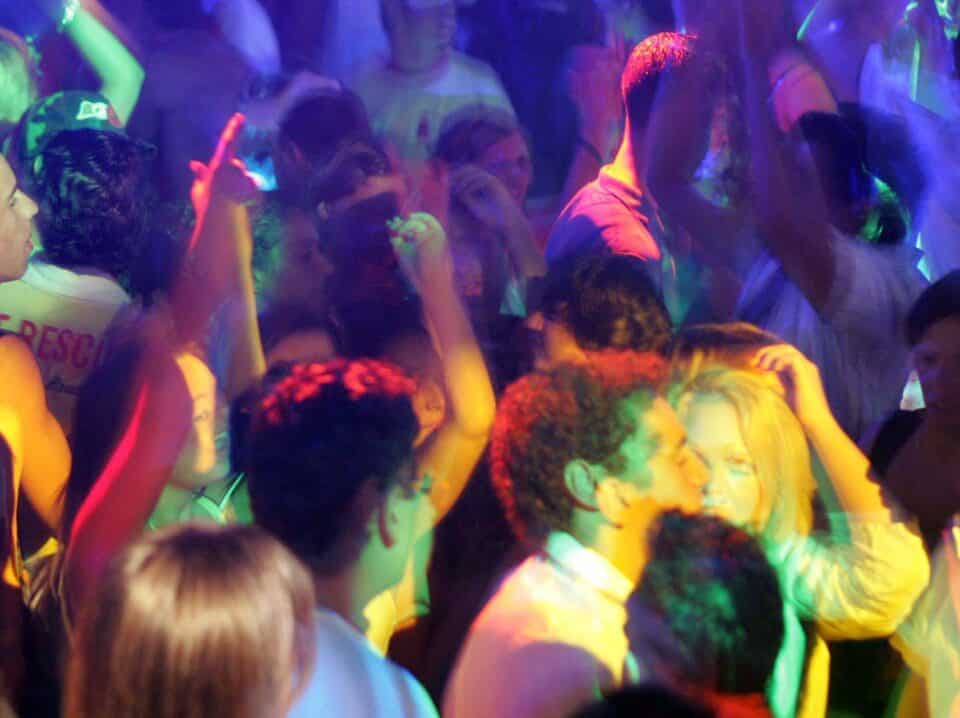MPs, the deputy tourism ministry and some municipalities are dragging their heels over clamping down on noise pollution
Stiffer fines and stricter penalties are coming for bars, nightclubs and other businesses pumping out deafening music until the early hours and operating without proper licences, but it is proving difficult to get all municipalities on board.
Dipa MP Marinos Moushiouttas said that at the House interior committee they are examining increasing fines for noise pollution from €85 to €500 for businesses found to be violating the law that stipulates the sound levels allowed of 60 to 70 decibels.
“The fines of €85 are a joke, and we have proposed to increase them to €500,” Moushiouttas said on the proposed bill the committee will examine in September.
The other proposed measure is for more people other than traffic officers to issue fines, including municipal workers, police, etc.
A third measure, which Moushiouttas said could be amended, is to require new businesses or businesses already found to be in violation of the noise pollution law to pay a guarantee fee, which will be non-refundable if the business violates the law.
Moushiouttas said that this will be a “respectable sum”.
Commenting on why there has been a delay in the bill being passed, the MP said that it has been going for debate almost at the beginning of tourist season and near the start of parliament’s summer break.
And this seems to be done so that businesses can squeeze yet another summer out with their operations uninterrupted by the law.
Interior Minister Constantinos Ioannou highlighted that the parliament had been delaying acting on the bill, which would impose stricter fines.
However, he said that the delay was coming from the deputy tourism ministry that had yet to decide on a finalised bill proposal for business operating hours.
But he highlighted that there is a remedy in the meantime, but only some municipalities are following the guidelines.
“The ministry has put out a protocol on how to fine businesses, or take away their speakers, or issue operating fines, etc,” he said.
He added that there have been meetings with police, the municipalities and district administration, who are all in charge of noise pollution.
Ioannou said that he had a recent meeting in Limassol, with all the authorities including municipal and district ones, as well as police, where they went over the protocol and how to deal with noise pollution.
“Many of the businesses don’t have the sound licences, but many also don’t even have operation licences from the deputy tourism ministry,” he said.
Ioannou said that once a complaint is filed then the deputy tourism ministry is meant to send out officers to investigate.
Municipal authorities are also allowed to investigate noise pollution complaints and fine businesses found to be in violation of appropriate levels of 70 to 60 decibels.
The law says: “In the context of strategic noise mapping the limits of 70 dB (A) and 60 dB (A) were proposed, for the day-evening-night noise indicator (Lden) and night-time noise indicator (Lnight), respectively, for the major roads in areas of pure and/or mixed residence.”
To play music businesses are required to apply for a sound licence.
Most businesses fail to even produce the licence, which is meant to be displayed at the business, and even if found to be in violation of noise levels they are not slapped with stiff penalties or being shut down.
The current fine is €85, while the business does not need to shut down, until a court decision is taken that it must close its doors.
The interior minister said that things were better in Paphos and the worst in Ayia Napa and Protaras. Police said that since the beginning of the year 187 complaints had been received in Paphos, 142 in Ayia Napa and 98 in Limassol.
A recent CyBC morning radio programme invited all the mayors of large towns to comment. Limassol mayor Nicos Nicolaides and Paphos mayor Phedon Phedonos had spoken, while CyBC said the Larnaca mayor Andreas Vyras did not want to comment.
Nicolaides said that at a recent meeting with the interior minister the municipalities had decided to not renew sound licences for businesses being fined.
He added that if there is a problem, then the public can invite authorities from the municipality to come take measurements in their areas.
Phedonos said that the “law exists but some are not abiding by it”.
“In Ayia Napa the bar owners are more organised and blocking the parliament from passing the law to tighten measures,” he alleged.
His view was supported by a Larnaca resident who pointed out that nothing had been done in the city.
The resident, Nicholas Ross-Clunis living in central Larnaca near Finikoudes said that he had sent multiple letters to the municipality about the problem in the area, and that he had also met with the mayor to discuss the matter.
Clunis said that he has been told by the mayor that the municipality does not want to close businesses, which is why they have not pursued complaints.
Clunis added that he does not want businesses to close but “to respect the law”.
He said that authorities had come around in July for a study, but Clunis added that most of the businesses do not have licences, as he has not seen any displayed. It was the first time he had seen the municipality doing anything on the matter.
Clunis said he must keep his window and balcony doors closed from mid-May to September and sit in the air conditioning, because nothing is being done.
“I can’t sit on the balcony because of the noise,” he said.
Clunis said that he asked the municipal authorities why they failed to do something like in Paphos, where the mayor has been sending authorities to collect the speakers at establishments violating permitted noise levels.
The answer, according to Clunis, was that “Paphos is a different state.”







Click here to change your cookie preferences